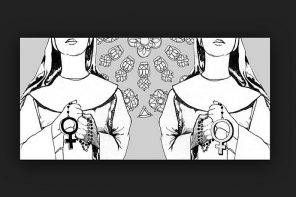Submission, evolution, and frustration—those were the notes sounded at this year’s annual conference of the Leadership Conference of Women Religious (LCWR), the organization representing 80 percent of the United States’ Catholic sisters.
This year’s meeting, held in Orlando, Florida, was made up of 825 nuns and only three priests, one of whom was Seattle’s Archbishop J. Peter Sartain—the official charged by the Vatican with overseeing the LCWR following last year’s harsh assessment of American nuns.
The Vatican came down hard on American sisters last year, admonishing them for doing too much “social justice” work, disagreeing with Church teaching on gay people, and propagating “radical feminist themes.” Not surprisingly, this assessment hung over much of the discussions and speeches at the LCWR assembly.
The goings on at the assembly shed light on the current fraught relationship between two influential groups in American political life. Both Catholic and non-Catholic Americans have been vocal supporters of American sisters in light of the Vatican’s assessment. Such support has given rise to the theme that it is American sisters—exemplified by the Nuns on the Bus and known for their work in communities around the country—who hold the grassroots power to bring politicians to task on justice issues from economic inequality to immigration reform. On the other side, stands a male hierarchy that has wielded conventional political influence and spent considerable money on issues from marriage equality to abortion.
Uncomfortable conference rooms aside, it is possible to read between the lines of both the official and unofficial messages that slipped out of the LCWR conference: The sisters were uncompromising—perhaps still feel betrayed by Rome—and Sartain offered a sort of double-message, emphasizing both dialogue and submission.
The Archbishop addressed the Sisters during mass on Wednesday and focused on obedience and submission to God. He did not directly address the continued pressure the Vatican has placed on American sisters to fall in line with the Church’s official interpretations of everything from health care to sexuality, but it is not a huge mental leap from obedience to God to obedience to “his ordained ministers” who have been tasked with expansive powers to reform American nuns.
Moreover, in Thursday’s session (held behind guarded closed doors), sisters were able to ask questions following Sartain’s 40-minute speech. Apparently, many sisters were frustrated by the Archbishop’s inability or unwillingness to clarify those things which they have done wrong and his insistence that they work on their “fidelity” to the Church’s official teachings. The official press release following the conference noted that the sisters felt their views and Sartain’s had been thoroughly shared, although it remains unclear how their situation will proceed.
It seems unsurprising that some sisters reportedly “raised their eyebrows” at Sartain’s statement that he was coming to the LCWR as their “brother.” His humility makes it a commendable sentiment, but they are certainly not coming to the table as equals in the eyes of the Church.
The outgoing LCWR President, Sr. Frances Deacon, offered a closing speech that did not let that reality go by: she spoke on the history of and need for greater involvement of women within the Church. She said,
“Our situation reflects larger questions and concerns such as…the ecclesial roles of women religious and of the laity, especially women; understandings of authority, faithful dissent, and obedience and the need for spaces where honest, probing questions about faith and belief can be raised and discussed.”
Similarly, in the conference’s keynote address, theologian Sr. Ilia Delio stressed belief as an open, dynamic, and evolving system and urged the sisters to continually renew and reconsider the role and nature of religious life (pertinent, as the majority of American sisters are elderly), focus on diversity and exploration over sameness, and continue to work for the poor and marginalized. As with Deacon who spoke on Friday, Delio’s statement was not full of fiery rhetoric, but reasoned confidence and guarded dissent.
It remains to be seen whether the LCWR will publically release that which was said behind closed doors or if the LCWR and the Catholic hierarchy can break through their seeming stalemate. As Catholics remain the largest religious denomination in America, the outcome could help shape the worldview and political beliefs of many: while the Vatican assessment loomed over the Assembly, the sisters officially called for gun control legislation and signed 800 postcards demanding Congress members to pass immigration reform.
As LCWR past-president, Sr. Pat Farrell said to the Assembly, “Expressing what we really think and feel, with transparency and vulnerability, is for the brave of heart. It is, however, what we are being asked to do in our current conflict. All of a sudden the world is looking to us.”



